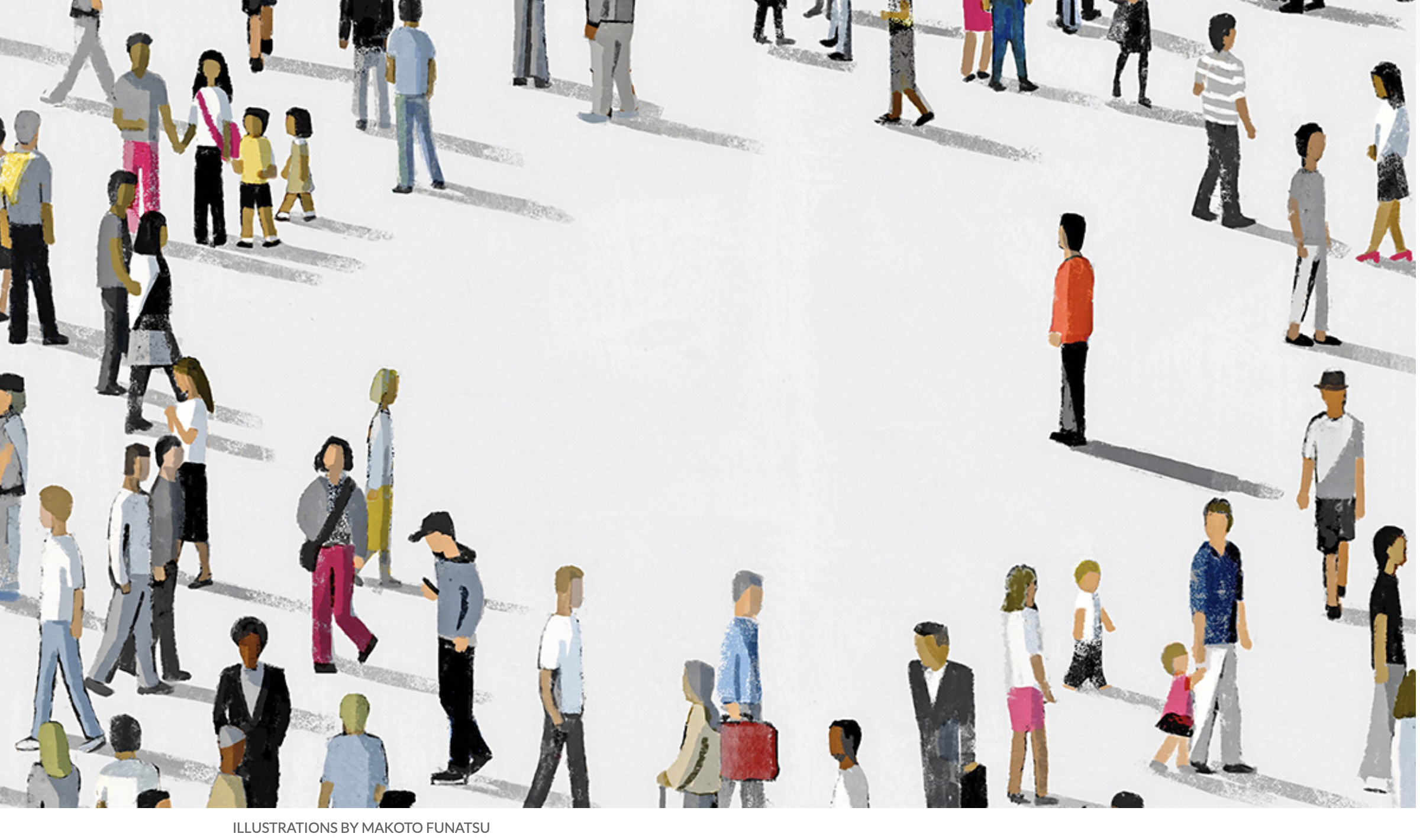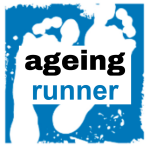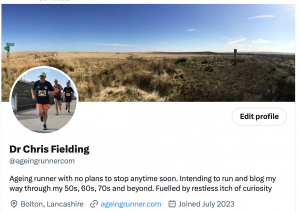Over the past few months, I have written and talked a few times about experiences of loneliness. We looked at an article by an ageing fell runner who felt that she was becoming invisible as she aged and this month I read an article about running and loneliness that caught my attention. It states that for some people, particularly those who are shy, running alone can feel less lonely than running with a group. It resonated with me and I found a world of academic work that describes different types of social withdrawal in ways which are more nuanced than I had imagined. I could recognise myself in the personality types described but ultimately disagreed with the authors’ case for running alone.

The authors surveyed 374 athletes at the Huntsman Senior Games, which is the world’s largest annual multi-sport games for those over 50. It takes place in Utah every October lasts 2 weeks and athletes compete in over 30 sports. The athletes were surveyed using scales which rated their perceptions of both social withdrawal (an umbrella term describing all forms of voluntary solitude) and their perceived loneliness.
Social withdrawal and it association with perceived loneliness is a well-established field of study amongst children, adolescents and college students but there has been less study of the older population. Shyness is often taken as a personality trait but social withdrawal scholars are now looking beyond that to consider more the motivation behind someone withdrawing socially. They look at both push and pull between a motivation to approach a social group and the opposing motivation to avoid it. They group people into three categories. Those who are shy (those with both a high approach motivation and a high avoidant motivation), those who are avoidant (those with a low approach motivation and high avoidant motivation) and those who are unsocial (both low approach and low avoidant motivations). They are ambivalent. They have no anxiety about joining a group, they don’t ignore it but have no real motivation for it.
I have never really considered myself to be ‘shy’ but the authors definition resonated with my experience. I am motivated to approach a group and seek connection but also motivated to avoid it through fear and anxiety. Using this model, shy individuals experience an internal approach/avoidance conflict. I feel that a lot, particularly when new to a group which has long established relationships or when there is unstructured time and small talk. I feel it most when I am stood on my own and everyone else seems to be chatting. I feel self-conscious and that my social awkwardness is out there for everyone to see. I don’t want anyone else to feel awkward on my behalf. The urge to escape is strong and sometimes it wins the battle and I don’t go in the first place.
The authors hypothesised that those who were shy would feel a more acute sense of loneliness than others taking part in the Games. That felt logical but the results were surprising. All three groups, the shy, the avoidant and the unsocial all experienced loneliness and surprisingly the avoidant group felt it more acutely than the others. This group are not motivated to join a group but have a high motivation to avoid. It. Why would they be feeling acutely lonely? The authors speculate that this group have previously been shy but have had such negative social experiences over time that they have lost all motivation for engagement. They are not going to put themselves out there to suffer that pain again and loneliness is the price they pay for that. I work with children and am familiar with this pattern. I have seen children repeatedly attempt to make friends only for it go wrong and them feel hurt. They try again and the pattern repeats to the point where we see a hardening and they withdraw and stop trying. I think of Ebeneezer Scrooge, a man who was emotionally hurt and eventually withdrew from society rather than face feeling that pain again. I think if he had done the survey, he would have come out as avoidant.
Although not as strong, the association between the unsocial group. This group are not motivated to make social connections despite it not being an issue for them. One possible reason for this is that these people get all the social interaction they need through their existing necessary networks. However, as we retire and children leave home these networks naturally decrease. They no longer have the connection they need but do not have the inbuilt drive to find it. They simply end up feeling lonely. Fascinating.
The authors found that for shy and avoidant people, taking part in a group activity exacerbated feelings of loneliness. This may be due to memories of past negative experiences and led to the authors stating that in these cases, there may be a case to play alone. I understand that but I don’t think that I can apply it my life as a runner. I think that strategy is maladaptive. It works in the moment but is not in our best interest in the long-term. I want to engage but, in some situations, fear stops me. I think that I need to understand that better and overcome it rather than letting the motivation to avoid win the battle. I think that I need the connection.
The athletes had broadly similar rates of shyness and loneliness when compared with other studies which suggests that these issues are as relevant for older athletes as the general population and that loneliness increased as we aged. Interestingly, 77% of the participants were married or in a very long-term stable relationship which corresponded closely with the ULTRA study finding which looked at the make-up of the ultra-running community. I would be interested to know what proportion of the athletes at the Huntsman Senior Games were educated to degree level and whether this is also similar to the high proportion of ultra-runners surveyed.
How can I take the findings of this study and apply it to my life as an ageing runner? I am so glad that I came across this article. It has opened up a new area for exploration. As I get older, I am going to need to build new social networks as my life shifts. I have made a good start. I am a regular at both my local running club and a Parkrun volunteer. I am now the member of a choir and ensures my connections even if I am injured. I think I can do better though. I need to explore my fear of social groups during unstructured times. How do I operate in these situations in a way that lets me enter them and feel safe? Lots to find out about. Upwards an onwards.
If anything here resonates with you, drop me a line.
We run, we chat, we smile!
Chris
References
One of the authors has made a copy freely available on ResearchGate here.


